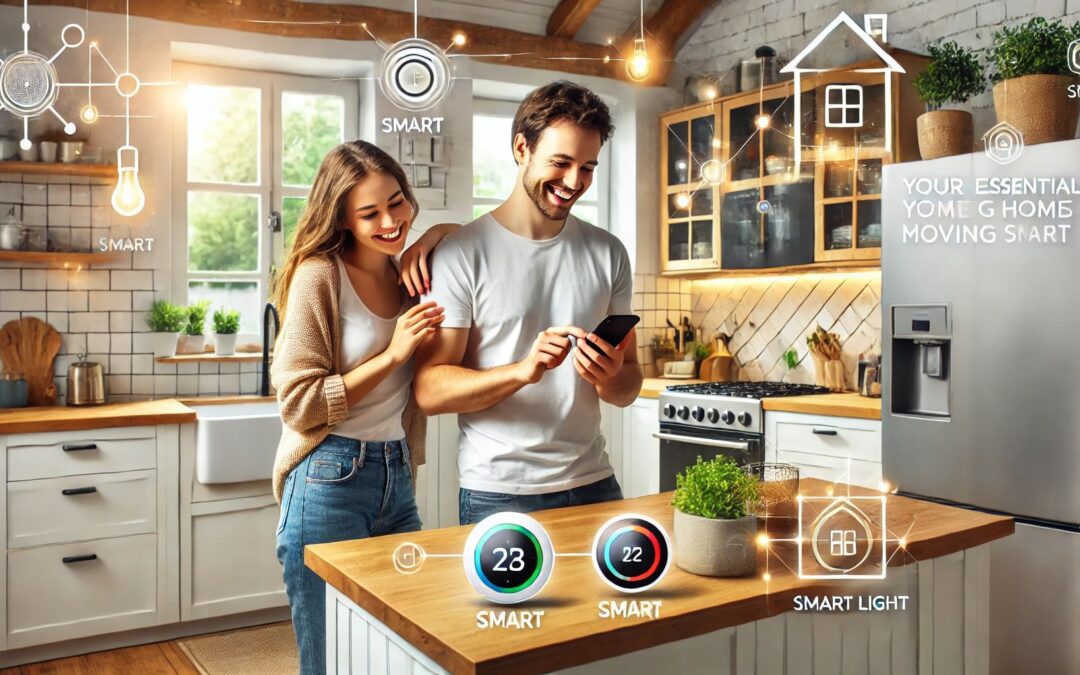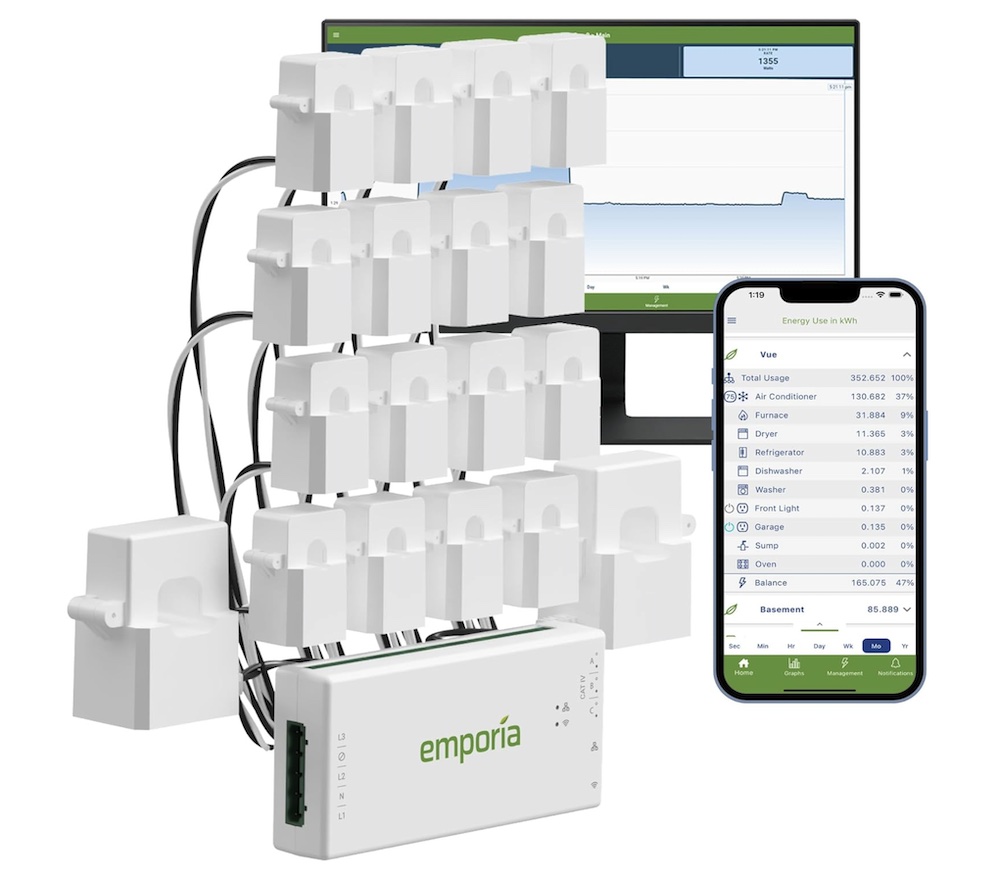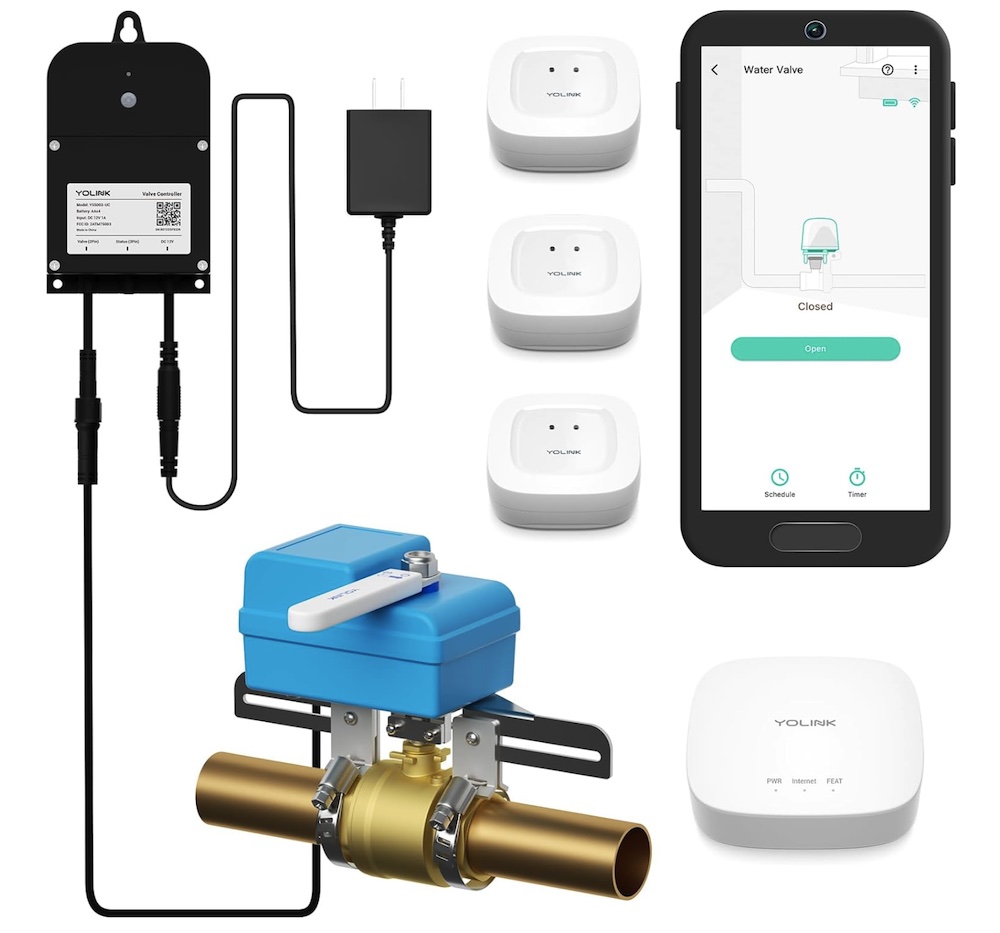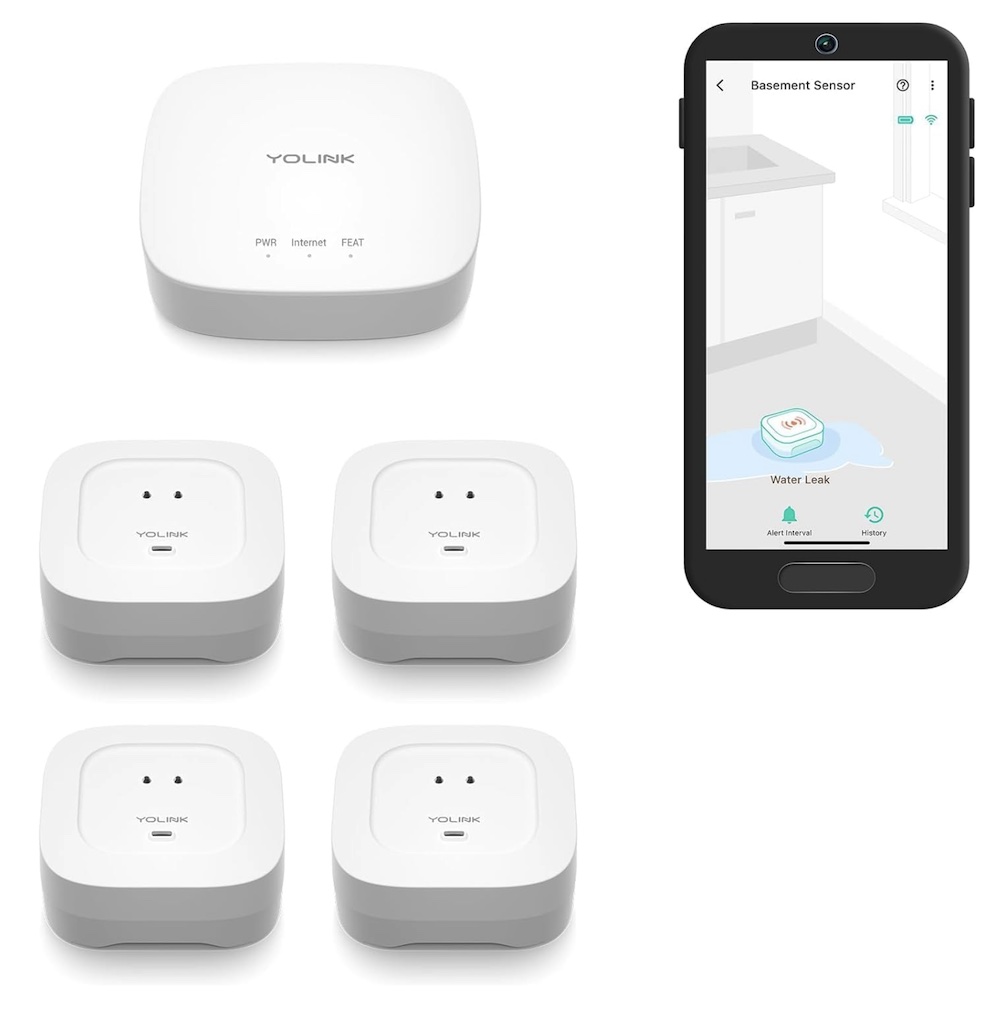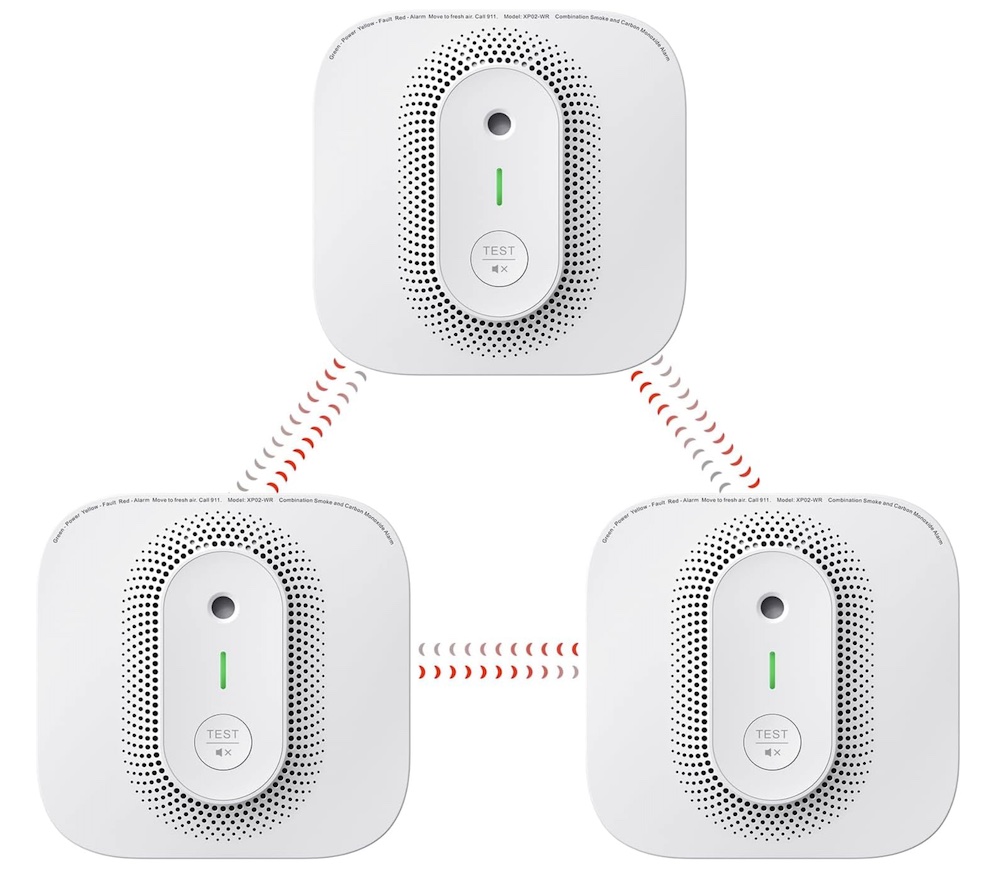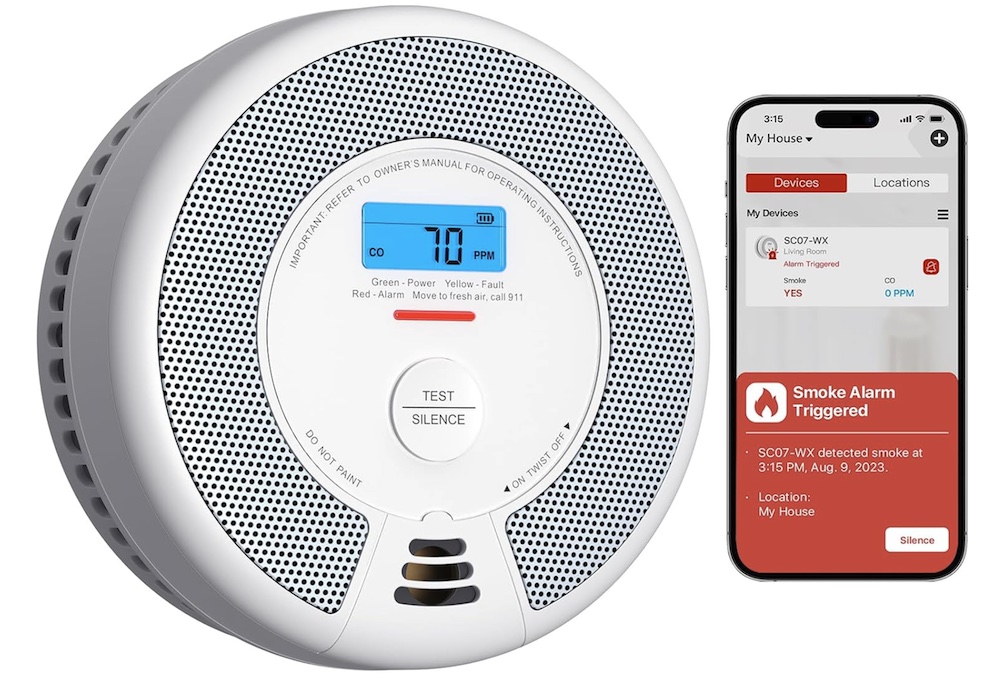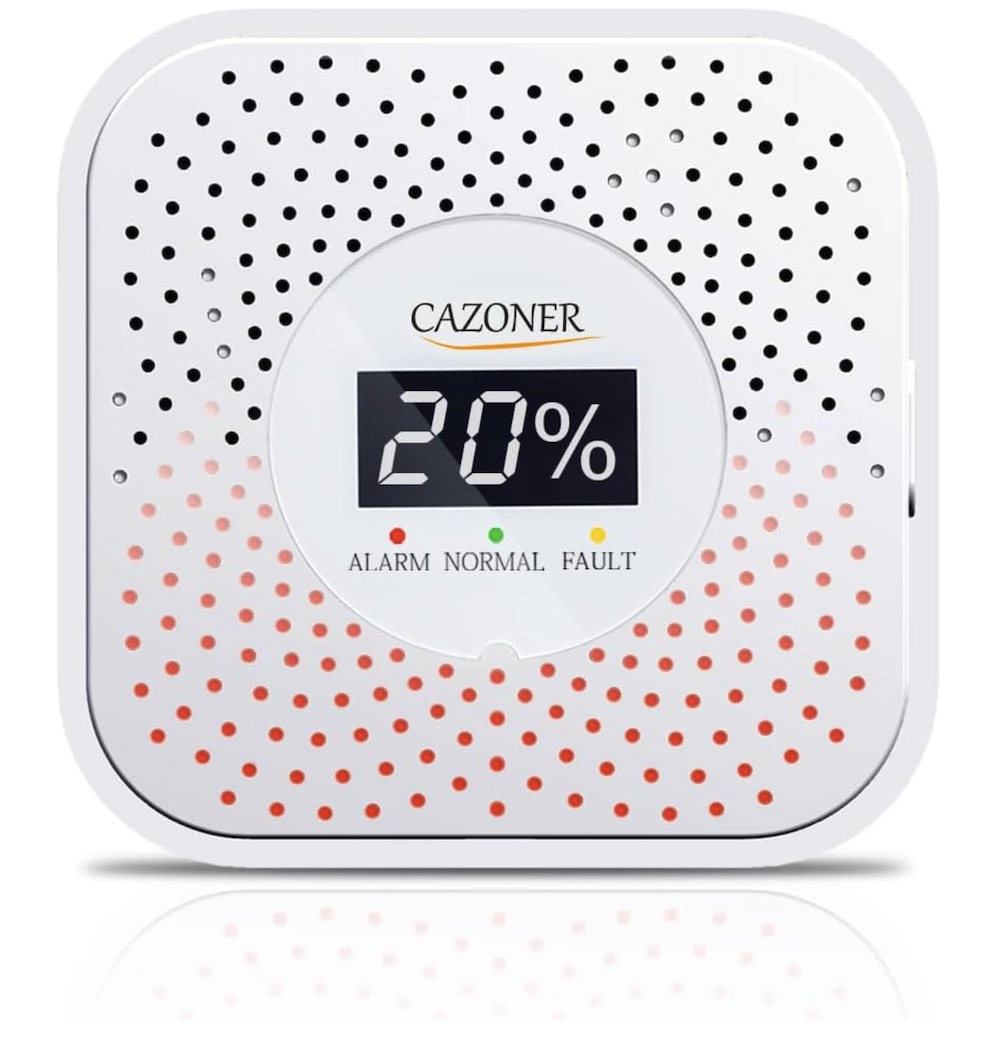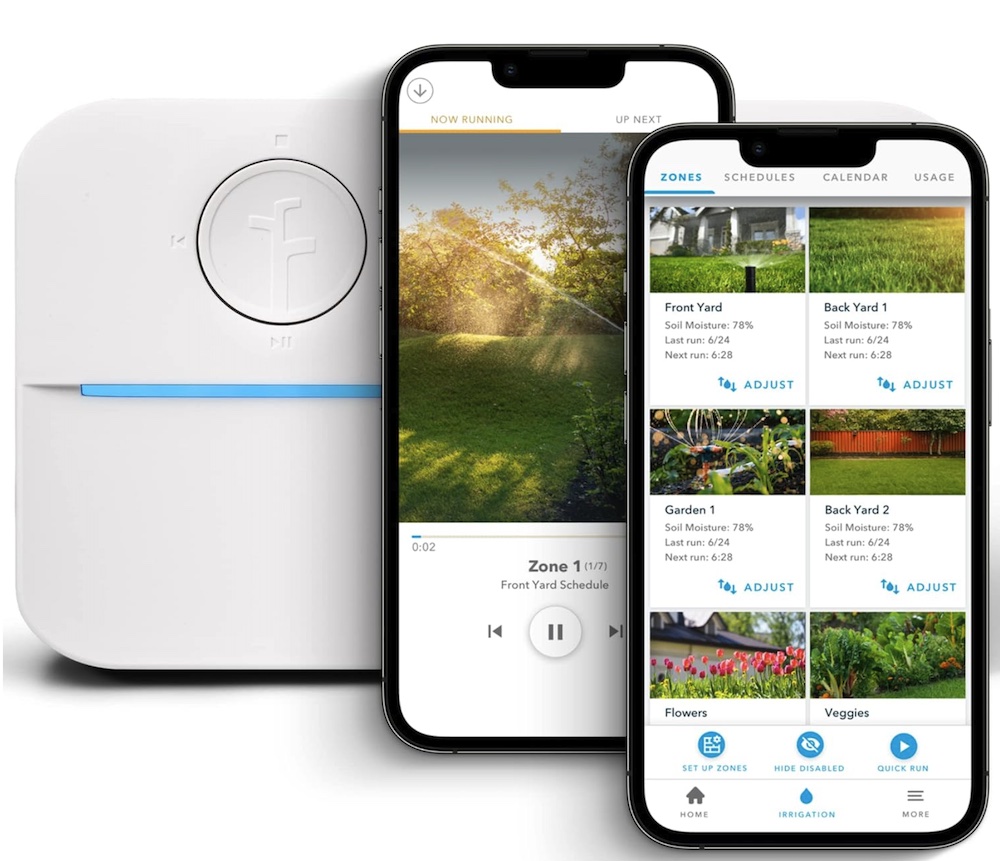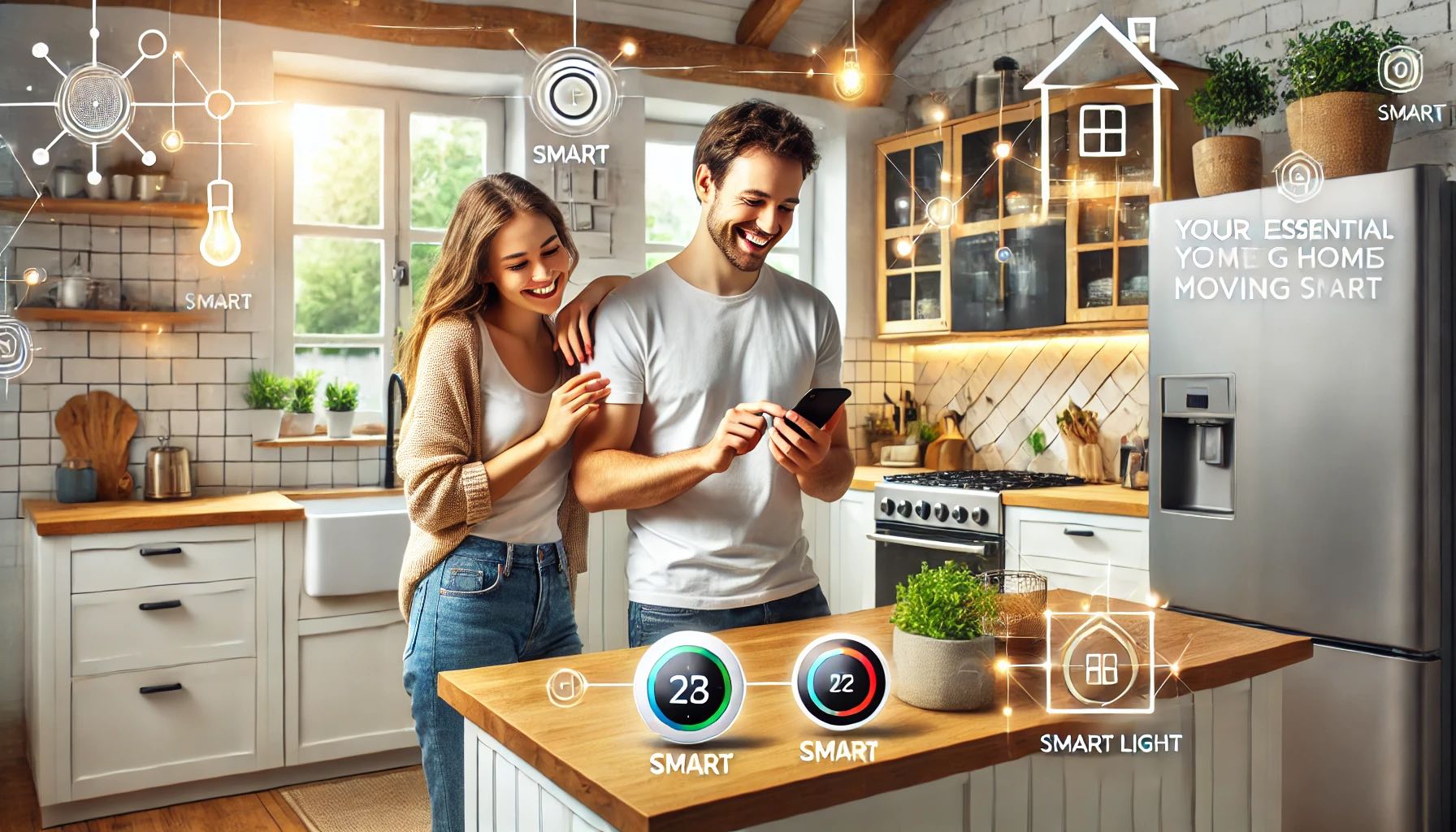
Moving into a new space is an exciting time, filled with possibilities and opportunities. One of the best ways to enhance your new home’s efficiency, safety, and convenience is by integrating smart home technology. This guide will introduce you to essential smart home devices that can make your home more intelligent and your life easier.
When you purchase products through links on our site, we may earn an affiliate commission. Here's how it works
Emporia Gen 3 Smart Home Energy Monitor
The Emporia Gen 3 Smart Home Energy Monitor with 16 50A Circuit Level Sensors is a comprehensive tool designed to give you detailed insights into your home’s energy usage. By monitoring energy consumption at the circuit level, it helps you identify energy-hungry appliances and make informed decisions to reduce your electricity bills.
Features
- Real-time monitoring of energy usage
- Individual circuit tracking for up to 16 circuits
- Solar net metering capabilities
- Compatibility with various smart home systems
Why We Recommend It
We recommend the Emporia Gen 3 Smart Home Energy Monitor for its real-time tracking capabilities and detailed appliance-level insights. This information is crucial for optimizing energy use and saving on utility costs.
✔ Pros
- Real-Time Monitoring: Provides 24/7 insights into energy usage, helping you spot inefficiencies immediately.
- Individual Circuit Tracking: Monitors up to 16 circuits, offering detailed data on specific appliances.
- Solar Net Metering: Ideal for homes with solar panels, allowing you to track energy production and consumption.
Ⅹ Cons
- Internet Dependency: Requires a stable 2.4 GHz WiFi connection.
- Installation Complexity: May need professional installation due to the complexity of the electrical panel.
- Data Retention: Short-term retention of detailed data (1-second data for 3 hours, 1-minute data for 7 days).
YoLink DIY Water Leak Protection Kit
The YoLink DIY Water Leak Protection Kit includes a Bulldog Valve Robot, Wireless Valve Controller, three Leak Sensors, and a Hub. It’s designed to detect leaks and remotely shut off the water main, preventing potential water damage.
Features
- Remote water shutoff capabilities
- Multiple leak sensors for comprehensive coverage
- User-friendly installation process
Why We Recommend It
This kit is perfect for protecting your home from water damage by offering immediate leak detection and the ability to shut off the water remotely.
✔ Pros
- Remote Water Shutoff: Allows you to control the water main remotely, providing peace of mind when you’re away from home.
- Comprehensive Coverage: Includes multiple sensors for thorough leak detection.
- User-Friendly Installation: Easy to set up and operate.
Ⅹ Cons
- Hub Dependency: Requires the YoLink Hub for full functionality.
- Battery Maintenance: Sensors require regular battery replacements.
- WiFi Requirement: Needs a stable internet connection for remote control and alerts.
YoLink Smart Home Starter Kit
The YoLink Smart Home Starter Kit consists of a Hub and four Water Leak Sensors with a 105dB audio alarm. It offers reliable leak detection and multiple alert methods.
Features
- High-volume alarm for immediate alert
- Long-range coverage up to 1/4 mile in open air
- Multiple alert methods including SMS, email, and push notifications
Why We Recommend It
This starter kit ensures that you are promptly informed about any water leaks through instant alerts via SMS, email, and push notifications.
✔ Pros
- High-Volume Alarm: 105dB alarm ensures you won’t miss a leak alert.
- Long-Range Coverage: Effective up to 1/4 mile open-air range.
- Multiple Alert Methods: Provides alerts via SMS, email, and push notifications.
Ⅹ Cons
- Hub Required: Needs the YoLink Hub to operate.
- Battery Maintenance: Sensors need regular battery checks.
- No Water Shutoff: Does not include a water shutoff capability.
X-Sense Combination Smoke and Carbon Monoxide Detector Kit
The X-Sense Combination Detector Kit includes three battery-powered, wireless interconnected smoke and carbon monoxide detectors with voice location.
Features
- Voice alerts specifying danger location
- Wireless interconnected system for comprehensive protection
- Battery-powered for easy installation
Why We Recommend It
This kit enhances home safety with interconnected alarms and voice alerts specifying the danger location, ensuring comprehensive protection.
✔ Pros
- Voice Alerts: Specifies the location of smoke or CO presence.
- Interconnected System: Wireless connection ensures all alarms sound if one detects danger.
- Battery-Powered: Easy installation without the need for wiring.
Ⅹ Cons
- Battery Dependency: Requires regular battery replacements.
- Initial Configuration: Might need initial setup for wireless connectivity.
- No Remote Monitoring: Lacks app-based remote monitoring features.
X-Sense Smart Smoke and Carbon Monoxide Detector
The X-Sense Smart Smoke and Carbon Monoxide Detector is a single unit with replaceable batteries, providing essential safety features.
Features
- Replaceable battery for simplified maintenance
- Smart features integrating with an app for alerts and monitoring
- Affordable price point
Why We Recommend It
This detector is a cost-effective solution for adding safety with easy battery replacement and reliable performance.
✔ Pros
- Replaceable Battery: Simplifies maintenance.
- Smart Features: Integrates with an app for alerts and monitoring.
- Affordable: Budget-friendly safety solution.
Ⅹ Cons
- Single Unit: Offers less comprehensive coverage compared to kits.
- Battery Replacement: Needs regular checks and replacements.
- Installation: Requires mounting on ceilings or walls.
Natural Gas Detector
This detector offers protection against natural gas leaks, detecting methane, butane, LPG, and LNG with a 10-year lifespan.
Features
- Long lifespan of up to 10 years
- Detects multiple types of gas leaks
- Loud alarm for immediate notification
Why We Recommend It
It provides peace of mind by alerting you to dangerous gas leaks, helping to prevent potential disasters.
✔ Pros
- Long Lifespan: Operational for up to 10 years.
- Multiple Gas Detection: Detects various types of gas leaks.
- Loud Alarm: Audible alert for immediate notification.
Ⅹ Cons
- No Remote Alerts: Lacks app-based notifications.
- Power Source: Requires a power outlet.
- Limited Placement: Needs strategic placement for optimal detection.
Rachio 3 Smart Irrigation Controller
The Rachio 3 Smart Irrigation Controller automates your lawn watering schedule based on weather data, ensuring efficient water use.
Features
- Weather intelligence for automatic schedule adjustments
- Remote control via a smartphone app
- Water savings through efficient management
Why We Recommend It
This controller is perfect for optimizing water usage, saving water, and promoting plant health with weather-based adjustments.
✔ Pros
- Weather Intelligence: Adjusts watering schedules based on weather forecasts.
- Remote Control: Manage watering via a smartphone app.
- Water Savings: Prevents overwatering, saving water and money.
Ⅹ Cons
- WiFi Requirement: Needs a stable internet connection.
- Initial Cost: Higher upfront cost compared to traditional controllers.
- Complex Setup: May require professional installation for optimal performance.
Integrating Smart Home Devices
Steps to Integration
- Assess your needs and priorities
- Ensure compatibility between devices
- Follow installation instructions carefully
- Test devices to ensure proper functioning
Importance of Compatibility
Compatibility is crucial to ensure seamless operation and integration of various smart devices in your home. Choose devices that work well together to create a cohesive smart home system.
Benefits of Smart Home Technology
Energy Savings
Smart devices like energy monitors and thermostats help reduce energy consumption, leading to lower utility bills.
Enhanced Security
Smart security systems provide real-time monitoring and alerts, ensuring your home is always protected.
Increased Convenience
Automating routine tasks like watering the lawn or managing lighting enhances convenience and frees up your time for more important activities.
Common Challenges and Solutions
Connectivity Issues
Ensure a stable and strong WiFi connection to avoid disruptions in device operation.
Device Compatibility
Research and choose devices that are compatible with each other and any existing smart home systems you have.
Maintenance
Regularly check and maintain your smart devices, including battery replacements and software updates.
How to Choose the Right Smart Home Devices
Assessing Your Needs
Identify your specific needs and priorities, such as energy management, security, or convenience.
Budget Considerations
Determine your budget and look for devices that offer the best value for your money.
Ease of Use
Choose user-friendly devices that are easy to install and operate.
Installation Tips
DIY vs. Professional Installation
Consider your technical skills and the complexity of the devices when deciding between DIY and professional installation.
Common Mistakes to Avoid
Avoid common mistakes like poor placement of sensors or failing to follow installation instructions.
Maintaining Your Smart Home Devices
Regular Updates
Keep your devices updated with the latest firmware to ensure optimal performance and security.
Battery Management
Regularly check and replace batteries in your smart devices to prevent interruptions in functionality.
Troubleshooting
Familiarize yourself with basic troubleshooting steps to resolve common issues quickly.
Enhancing Home Security with Smart Devices
Smart Locks
Install smart locks for keyless entry and remote access to your home.
Security Cameras
Use security cameras for real-time monitoring and recording of any suspicious activity.
Motion Sensors
Deploy motion sensors to detect movement and trigger alerts or alarms.
Optimizing Energy Use
Smart Thermostats
Use smart thermostats to regulate your home’s temperature efficiently.
Energy Monitoring
Monitor your energy usage with smart energy monitors to identify areas for improvement.
Efficient Lighting
Implement smart lighting solutions to control and schedule your home’s lighting.
Smart Water Management
Leak Detectors
Install leak detectors to detect water leaks early and prevent damage.
Smart Irrigation Systems
Use smart irrigation systems to manage your lawn watering schedule efficiently.
Water Usage Tracking
Track your water usage to identify patterns and areas for potential savings.
FAQs
What are the benefits of integrating smart home devices? Integrating smart home devices enhances energy efficiency, security, and convenience in your home.
How do I choose the right smart home devices for my needs? Assess your specific needs, budget, and ease of use to choose the right devices.
Are smart home devices difficult to install? Some devices are DIY-friendly, while others may require professional installation.
How can I ensure compatibility between different smart home devices? Research and choose devices that are compatible with each other and your existing systems.
What are common challenges with smart home technology? Connectivity issues, device compatibility, and maintenance are common challenges.
How often should I update my smart home devices? Regularly check for and install firmware updates to ensure optimal performance.
Integrating smart home technology into your new home is a great way to enhance its efficiency, safety, and convenience. By carefully selecting and installing the right smart devices, you can enjoy a more intelligent and streamlined living experience. Embrace the benefits of smart home technology and take your new home to the next level of comfort and functionality.

